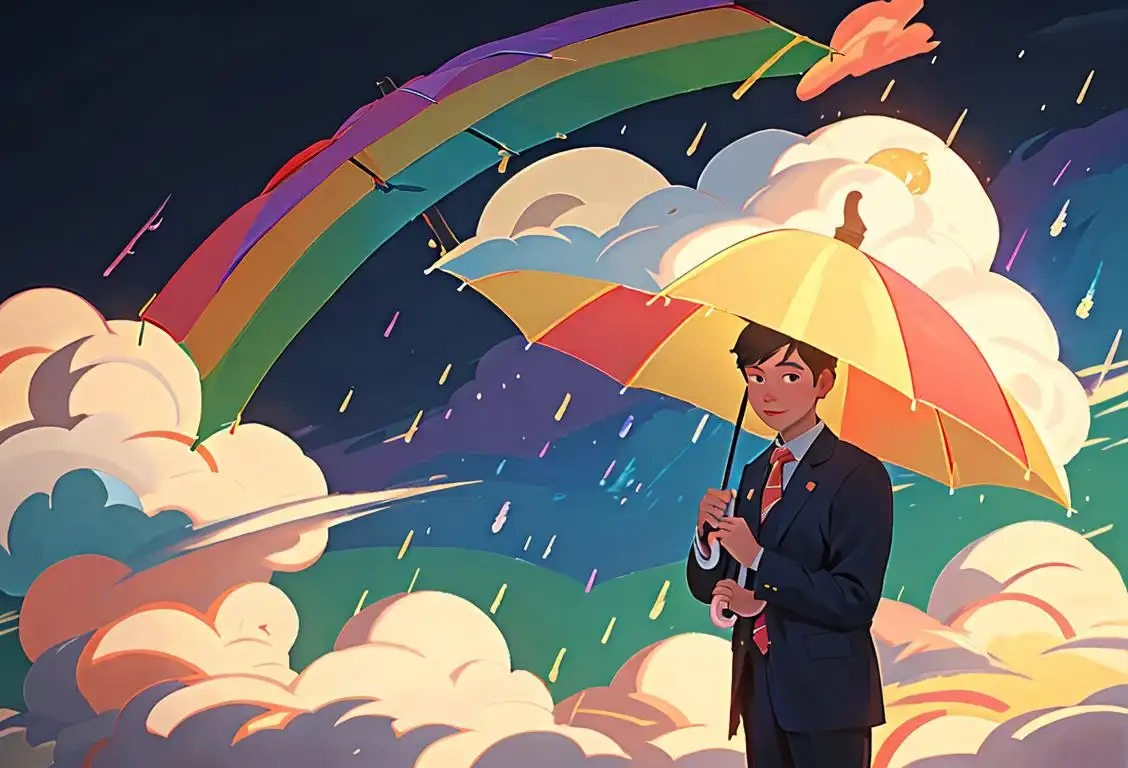National Weather Forecasters Day

Hey there, weather enthusiasts! Today is National Weather Forecasters Day, a day to celebrate those brave souls who predict whether it's going to be sunny or cloudy, rainy or snowy. So grab your umbrellas or sunscreen (depending on what they told you), and let's dive into the fascinating world of weather forecasting!
When is Weather Forecasters Day?
It's national weather forecasters day on the 5th February.
The Origins of National Weather Forecasters Day
While we may take weather forecasts for granted now, predicting the whims of Mother Nature wasn't always so accurate. Back in the day, people would consult shamans, sacrifice goats, or just stick their heads out the window to get an idea of what the weather had in store for them.
But everything changed when technology stepped in and weather forecasters emerged as the unsung heroes of the modern era. National Weather Forecasters Day aims to honor these individuals for their tireless efforts to keep us informed.
The Evolution of Weather Forecasting
From old-timey barometers to state-of-the-art Doppler radars, weather forecasting has come a long way. Early meteorologists used crude instruments and simple observations to predict the weather. If a cow was laying down, rain was likely on the way. If the cow was standing, well, hope you packed your sunglasses!
Fortunately, we've made great strides in the accuracy and sophistication of predicting the weather. Satellites, computer models, and advanced algorithms now allow forecasters to look into the future (well, at least a few days ahead) and tell us what to expect. So the next time your weather app gets it right, give a little shout-out to those weather forecasters!
Fun Weather Fact
Did you know that the term 'meteorology' comes from the Greek word 'meteoron,' which means 'something in the air'? So next time someone asks you what you're studying, you can casually drop that word and sound super smart!
History behind the term 'Weather Forecasters'
5th century BC
Early Observations
In ancient times, people relied on basic observations to predict the weather. They observed the behavior of animals, birds, and plants, as well as the movement of the clouds and wind patterns. These early forecasters used their observations to make crude predictions about future weather patterns.
9th century
Arab Scholars and Instruments
During the 9th century, Arab scholars began making significant strides in the field of forecasting. They developed instruments such as the astrolabe and the weather clock, which helped measure and predict various weather phenomena. These technological advancements allowed for more accurate weather forecasting.
17th century
Barometers and Thermometers
In the 17th century, the invention of the barometer and the thermometer further improved weather forecasting. Evangelista Torricelli's invention of the mercury barometer and Galileo Galilei's improvements to the thermometer allowed forecasters to measure air pressure and temperature changes, respectively. These measurements provided valuable data for predicting weather patterns.
19th century
Telegraph and Weather Bureaus
The 19th century marked a significant milestone in weather forecasting with the advent of the telegraph. The telegraph enabled rapid communication over long distances, allowing weather observations and data to be shared quickly between different locations. National weather bureaus were established in various countries to collect and analyze this data, leading to more accurate and reliable weather forecasts.
20th century
Technology and Computer Models
In the 20th century, advancements in technology revolutionized weather forecasting. The invention of weather satellites, radar systems, and advanced computer models greatly enhanced the ability to predict and track weather patterns. Weather forecasters now rely on sophisticated systems and models that take into account a wide range of atmospheric data to make accurate predictions.
Did you know?
Did you know that weather forecasts have been around since ancient times? Babylonians, Egyptians, and Chinese civilizations all had their own methods of predicting the weather. They may not have had fancy Doppler radars, but they still managed to have some idea if they needed to pack their raincoats or sun hats.Tagged
awareness funFirst identified
12th March 2015Most mentioned on
5th February 2016Total mentions
9Other days
Nurses Day
Former Prisoner Of War Recognition Day
Press Day
Handloom Day
Heroes Day
Memorial Day
Dance Day
Bestfriends Day
Liberation Day
Love Your Pet Day









